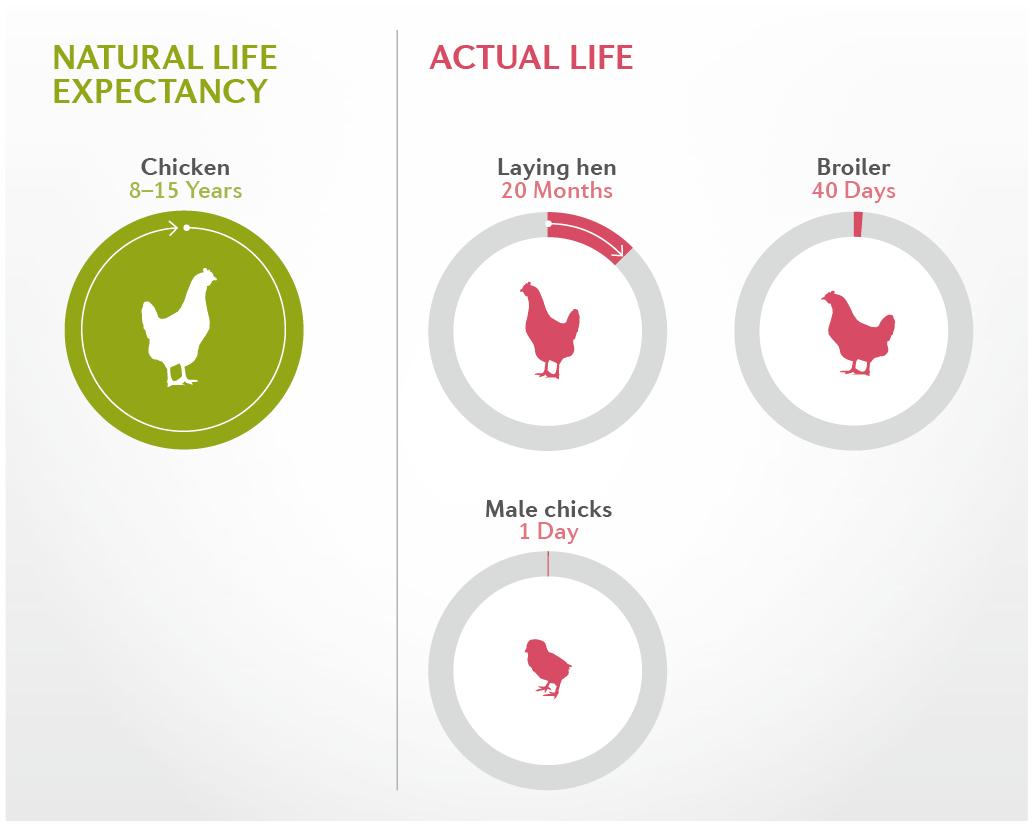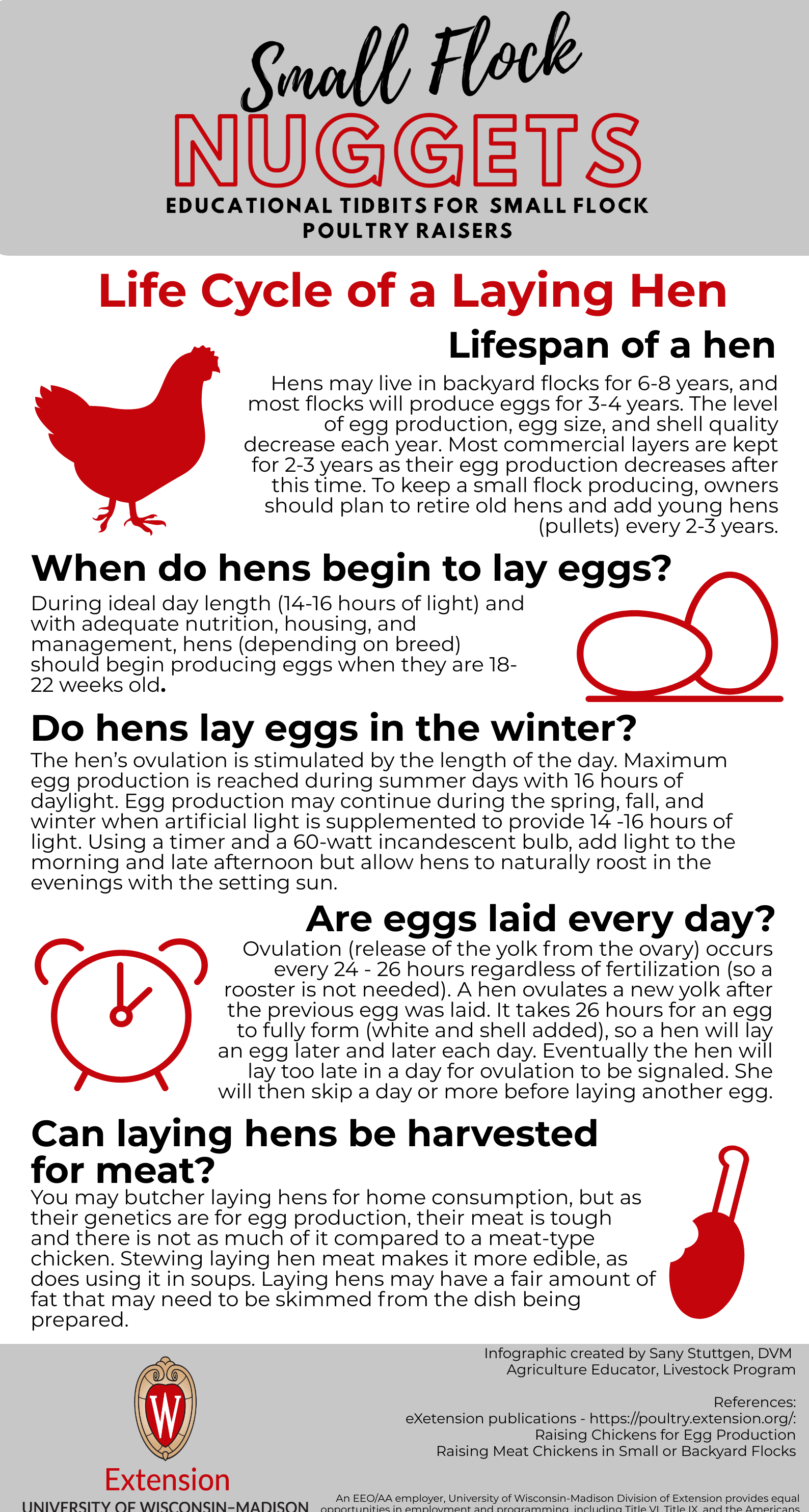Are you wondering how long chickens live? If so, you’re not alone. Many people ask the same question when considering taking on the responsibility of owning chickens. In this article, we’ll explore the answers to this question and provide all the information you need to know about chicken husbandry. From average life spans to health and nutrition, we’ll cover it all so you can make an informed decision about owning chickens. So, read on to learn how long a chicken is likely to live and how to best care for your feathered friends.
Chicken Lifespan

Average Lifespan
The average lifespan of a chicken can depend on the breed and the environment in which it lives. Generally, chickens can live between 5 and 10 years, but some breeds can live for more than 10 years. The oldest recorded chicken lived for 16 years.
Factors Affecting Lifespan
Diet: A balanced diet with adequate nutrition is essential for a chicken’s health and longevity. A diet that is too high in protein can contribute to feather picking and obesity.
Environment: A clean, safe environment that is free from predators and other hazards is important for a chicken’s health and longevity.
Genetics: Certain breeds of chickens are more prone to disease and have shorter lifespans. Some breeds of chickens, such as the Rhode Island Red and the Orpington, are known to live longer than others.
Laying: How long do laying chickens live? Chickens that lay eggs regularly can live up to 7 years, while those that don’t can live up to 8 years.
Care: Proper care and attention, such as regular health checks and parasite control, can help to ensure a chicken’s long life.
Laying Chickens Lifespan

Average Lifespan
The average lifespan of a commercial laying hen is approximately two years. After about 18 months of age, the hens produce fewer eggs and the eggshell quality declines. The length of a chicken’s life depends on several factors, including breed, housing, diet, and general health.
Factors Affecting Lifespan
Breed: Different breeds of chickens have different lifespans. Generally, larger breeds have shorter lifespans than smaller breeds.
Housing: Chickens kept in small, crowded, dirty, and wet conditions are more likely to become ill and have a shorter lifespan.
Diet: A balanced diet is essential for a healthy and long life. A diet lacking in vitamins and minerals can lead to health issues and a shorter lifespan.
General Health: Chickens that are in good health and free of parasites and diseases are likely to live longer than those that are not. Vaccinations and regular health checks can help to ensure that chickens stay healthy.
Overall, with proper care and a balanced diet, chickens can live up to two years or longer.
Husbandry
Housing
Chickens require adequate housing for protection from predators and the elements. Coops should be well-ventilated and have plenty of space for the birds to move around. The floor should be covered with bedding such as straw, wood chips, or sand.
Food and Water
Chickens need a balanced diet to stay healthy. A commercial feed is usually the best choice. Fresh, clean water should be available at all times. The water should be changed daily and the food should be replenished every few days.
Health Care
Chickens should be checked regularly for signs of illness. Common ailments include mites, lice, and respiratory infections. If any of these are present, a vet should be consulted. Vaccinations may be necessary in some cases. A healthy diet and proper housing can help keep chickens healthy.
Frequently Asked Questions
What Environmental Factors Can Affect the Life of a Chicken?
- Temperature: A chicken’s comfort and health can be adversely affected by extreme temperatures. Too much heat can cause heat stress, while cold temperatures can lead to frostbite.
- Light: Chickens need at least eight hours of uninterrupted light per day in order to produce eggs. Too little light can lead to decreased egg production and other health problems.
- Humidity: High humidity can cause respiratory issues in chickens, while too little humidity can lead to feather damage.
- Ventilation: Poor ventilation can cause ammonia buildup, which can cause severe respiratory irritation and even death.
- Food and Water: A lack of access to nourishing food and clean water can have a negative impact on a chicken’s life expectancy.
- Predators: Predatory animals such as foxes, hawks, and raccoons can cause significant harm to chickens, leading to death or injury.
- Parasites: Parasites such as mites and lice can cause significant harm to chickens, leading to decreased egg production and poor health.
Are there any specific medical conditions chickens are prone to?
Yes, chickens are susceptible to a variety of health issues, including:
- Marek’s Disease: This viral disease affects the nervous system and can be fatal if left untreated.
- Coccidiosis: This is an intestinal disease caused by parasites and can lead to diarrhea and dehydration.
- Avian Influenza: This is a contagious virus that can cause respiratory illness, depression, and death.
- Mycoplasma gallisepticum: This is a bacterial infection that can cause respiratory problems and decreased egg production.
- Fowlpox: This is a viral infection that can cause lesions and decreased egg production.
- Newcastle Disease: This is a viral disease that can cause respiratory problems and neurological damage.
- Infectious Bronchitis: This is a viral infection that can cause respiratory issues, decreased egg production, and egg drop.
- Airsacculitis: This is a bacterial infection that can cause respiratory problems, decreased egg production, and egg drop.
It is important to be aware of these illnesses and to take preventive measures to ensure your chickens stay healthy. Vaccinations, regular health checks, and a clean environment are all key to a healthy flock.
What Should I Consider When Deciding Whether to Keep a Chicken in My Backyard?
Space: Ensure you have enough space to house a chicken coop and a secure outdoor area for chickens to roam.
Climate: Consider the climate of your local area, making sure the chicken coop is well-ventilated, insulated and protected from the elements.
Time: Chickens need to be fed and watered every day and their housing should be cleaned regularly.
Cost: Keeping chickens requires an initial investment in housing, equipment, food and health care.
Neighbours: Make sure your neighbours are comfortable with you keeping chickens in your backyard.
Are there any steps I can take to ensure my chickens live a long and healthy life?
Provide Clean Living Conditions: Chickens need a clean living environment in order to stay healthy. Make sure the chicken coop is free from dirt, debris, and parasites. Clean out the coop and nesting boxes regularly and provide fresh bedding material such as straw or wood chips.
Healthy Diet: Make sure your chickens are getting a balanced diet, with plenty of fresh fruits and vegetables, whole grains, and protein. Avoid over-feeding, as this can lead to obesity, which can reduce a chicken’s lifespan.
Regular Health Checks: Check your chickens regularly for signs of illness or injury, and take them to the vet if necessary. Early detection can help prevent more serious health problems down the line.
Vaccinations: Vaccinate your chickens against common poultry diseases, such as Marek’s disease and avian influenza. Vaccination helps to protect your flock against serious diseases.
Prevent Parasites: Keep your chickens free from parasites, such as mites, fleas, and worms. Use a preventative worming treatment and inspect chickens for signs of parasites regularly.
Provide Proper Shelter: Make sure your chickens have access to a dry, secure shelter to protect them from the elements. Chickens should be able to escape from the wind, rain, and snow in order to stay healthy and comfortable.
Regular Exercise: Allow your chickens access to an outdoor area with plenty of space to exercise, scratch, and forage. This helps chickens stay fit and healthy, and can add years to their life.
Are There Any Particular Breeds of Chicken That Are Known to Live Longer Than Others?
Yes. There are certain breeds of chickens that have been known to live longer than others. These breeds include:
- Rhode Island Reds
- Orpington
- Australorps
- Brahmas
- Buckeyes
- Sussex
- Plymouth Rocks
- Wyandottes
These breeds are considered to be hardy and have a natural resistance to diseases, which can help them live longer. In addition, they typically have a good diet and receive regular care, which can also increase their life span. It is also important to keep in mind that the environment in which chickens are kept can have a significant impact on their lifespan. Chickens that are kept in a clean, safe, and well-ventilated environment are more likely to live longer.
Conclusion
A chicken’s life expectancy can depend on a number of factors including the breed, diet, and living conditions. With proper care and nutrition, a chicken can live up to 10 years. The key to keeping chickens healthy and happy is to provide them with the right environment, food, and veterinary care. With the right knowledge and resources, chicken husbandry can be a rewarding experience.
